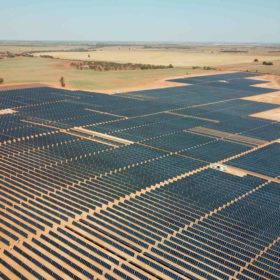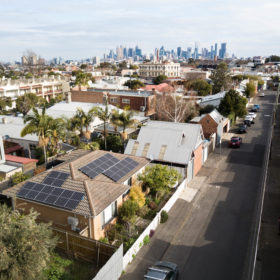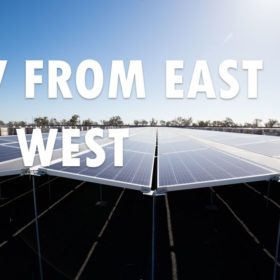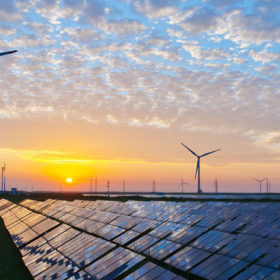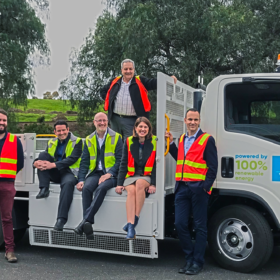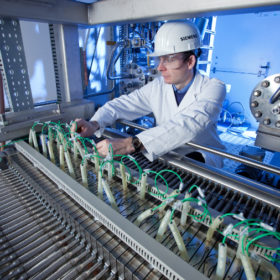Slowdown in renewable investment should be highest priority for COAG Energy Council, says CEC
The Clean Energy Council (CEC) is pushing for the COAG Energy Council to address the dramatic slowdown in investment in large-scale renewable energy when it meets this Friday, 22 November. The CEC believes the slowdown is the industry’s highest priority.
Tasmania wants to lead the way with green hydrogen
New Analysis from Hydro Tasmania shows the island state to be in a unique position to lead the nation in the production of green hydrogen from renewable sources.
Golden by name, Golden by nature, Melbourne family reaps solar rewards
In a classic example of nominative determinism, like Usain Bolt running as fast as a bolt of lightning or Bulgaria’s ill-fated 400m hurdler Vania Stambolova, the Golden family of Clifton Hill take advantage of golden sunlight to power their home.
Part 3: Big solar deployment outshines Queensland coal story
In late 2016, Queensland’s Labor Government revealed a plan for 50% of the State’s electricity to be renewably sourced by 2030, and the state has made significant steps toward that goal.
Pivotal role of corporate power purchase agreements in Australia’s energy transition
Over the last two years, corporate renewable power purchase agreements have become a major force in Australia’s large-scale renewable energy market. In hard figures, 70 leading Australian organizations have made the switch to renewable energy and procured nearly 2.3 GW of mostly solar and wind electricity and supported 5.2 GW of projects, finds the Business Renewables Centre of Australia.
Part 2 – South Australia: The nation’s renewable energy superstar
From an energy-hungry importer to a frontrunner in the decarbonization race, South Australia has set the bar high for how to efficiently transition to a low-emissions grid dominated by renewables. With wind and solar already supplying more than a half of its electricity, the state’s energy transition shows no sign of letting up. In fact, South Australia is gearing up to accelerate the pace of its clean energy transition and expand its big PV fleet as it moves toward its 2030 target of “net” 100% renewables.
Australia’s SEA Electric is set to displace diesel in commercial vehicles worldwide
The Australia Institute’s National Energy Emissions Audit revealed the disheartening news that growth in diesel consumption, mainly in road transport, has negated gains made in carbon emissions reduction achieved in the NEM. But one Australian automotive-engineering firm has plans to transform the light-to-medium-duty diesel-slurping vehicle sector to run cleanly and quietly on electricity.
A guided tour of Australia’s solar and storage market; Part 1: Victoria
Abundant sunshine, favorable policy settings and high power prices have long placed Australia at the cutting edge of rooftop solar uptake. The more recent utility-scale boom has further enhanced its status as a PV leader. Battery adoption, microgrids, EVs and green hydrogen are all taking shape, yet what should be an Aussie smart energy no-brainer continues to be dogged by mounting investment uncertainty and a toxic debate on the national level.
Asia Pacific’s decarbonisation bill could hit US$3.5 trillion by 2040
Recent Wood Mackenzie analysis suggests Asia Pacific’s decarbonisation bill could hit US3.5 trillion by 2040. US$3.5 trillion is enough to buy everyone in Sydney a house at Sydney’s inflated housing prices, or alternatively, it’s enough to buy everyone a single avocado toast at a trendy cafe.
Green hydrogen to reach cost parity by 2030
Recent analysis from Wood Mackenzie predicts green hydrogen, produced primarily by solar electrolysis, will reach cost parity in Australia, Germany and Japan by 2030.
